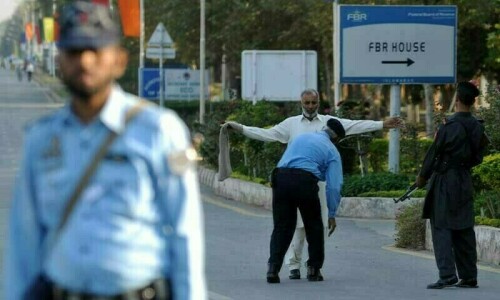ISLAMABAD, Aug 29: Policymakers in both India and Pakistan need to change their traditional attitude towards each other and look forward to the future generation.
This was stated by Raj Chengappa, an eminent Indian journalist and the editor-in-chief of the Tribune Group of Newspapers India while addressing the fifth round of Jinnah Institute’s Distinguished Speaker Series here on Thursday.
Mr Chengappa, who is also the former managing editor of ‘India Today’ and the author of “Weapons of Peace: The Secret Story of India's quest to be a Nuclear Power”, criticised successive governments in both countries for not taking the dialogue process seriously.
“The cost of abandoning a constructive Indo-Pak dialogue is perilously high,” Mr Chengappa said, adding that both countries were wasting their energy on useless ventures.
He said the two major counties of South Asia (India and Pakistan) had been enveloped in their own historical narratives, but the time had come to change this tradition.
The lecture titled ‘Indo-Pak Relations: New Beginnings, Old Endings?’ witnessed discussion by senior journalists from India who discussed the similarities between both countries.
Mr Chengappa said both Pakistan and India enjoyed a massive youth bulge, an exploding middle-class and a sizeable market. However, he then steered towards the harsh realities faced by ordinary citizens of both counties.
He said the economies of both South Asian countries required 10 percent growth rates and nothing less would suffice. “Such growth is not possible without peace,” he added.
The established Indian journalist also lashed out at hardliners in his native country and said he was firmly against those who argued that there should be no dialogue with Pakistan until progress was made in the Mumbai trials.
Mr Chengappa also elaborated upon various phases in the Indo-Pak relations and briefed participants about the causes of hostile relations. Towards the end, he said he was optimistic about the future prospects for peace between both counties.
“India and Pakistan moved from fighting to talking about fighting and then to fighting about talking. We can say things are moving in the right direction – it is not as if progress has not been made,” the senior journalist said.
He lauded Pakistan’s transition to democracy and expressed confidence in the new PML-N government to confront the country’s domestic challenges. “In my opinion, Prime Minister Nawaz Sharif seems to be more assured,” he added.
The Distinguished Speaker Series is a core part of Jinnah Institute’s Indo-Pak track-II diplomacy initiative. It aims to improve understanding of bilateral issues and increase public participation through people-to-people contact.











































Dear visitor, the comments section is undergoing an overhaul and will return soon.